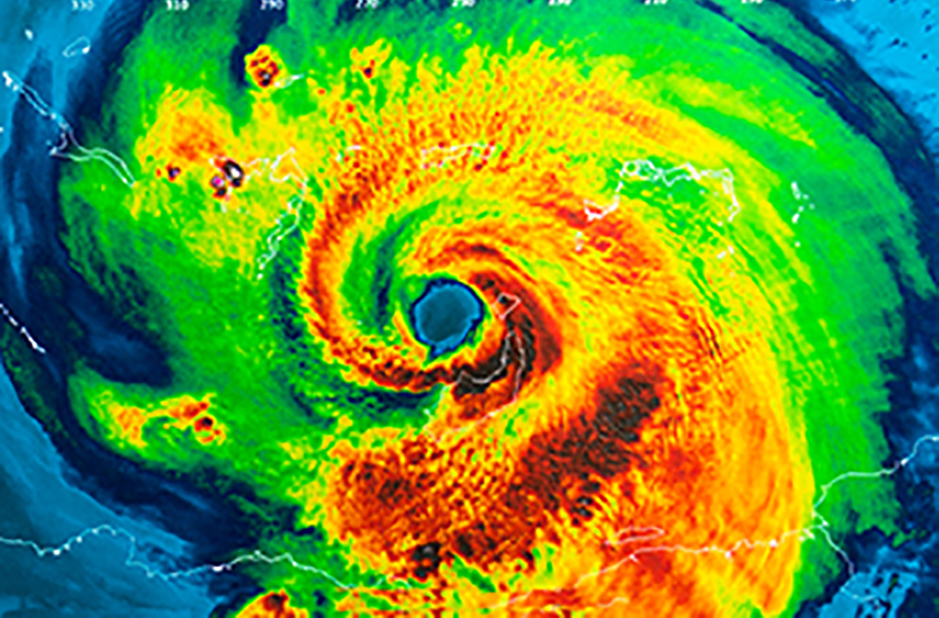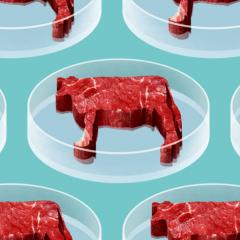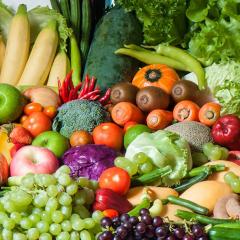Global food production is beginning to feel the impacts of climate change with declines in crop yields.
Temperature increases over land now average 1.5oC, and agricultural productivity in many parts of the world is already several per cent lower than it would have been in the absence of climate change.

Leading Australian climate researcher Professor Mark Howden said change is required to help agricultural systems adapt.
“For example, about 700 million square kilometres of land – about the size of Australia – is needed for planting trees to store carbon in order to keep temperature increases to 1.5oC. That land would then be lost to conventional agriculture, creating even more pressure on food production,” Professor Howden said.
As a keynote speaker at the international TropAg Conference on 11-13 November in Brisbane, Professor Howden will discuss the need for incremental, systemic and transformational changes in agriculture.
He said tropical regions, where crops are already growing at the extreme end of their temperature range, are particularly susceptible to climate impacts. These regions are also home to the world’s fastest-growing populations.
“If we ask whether we can meet growing demand for food without making changes, then I think the answer is no,” he said.
“As climate change increases, the impacts on agricultural productivity are likely to get worse.”
Change on three different scales is needed to help agricultural production adapt, in conjunction with other climate initiatives to capture and store carbon and reduce greenhouse gas emissions.
- Transformational change is where fundamentally new food production systems – for example, insects as a new source of protein – come into play, or where there is significant relocation of production to more amenable regions.
- Systemic change is illustrated by Indian farmers, who have already switched from maize to the more heat and drought tolerant grain, sorghum.
- Incremental change is also underway in the form of international consortia attempting to drive up yield potential and enhance climate adaptation through advanced breeding programs and improved agronomy.
Normally, agricultural efficiencies and innovation maintain a buffer against production shortfalls, but the global population is increasing by about 1.7 per cent a year.
That means food production is under pressure to increase at an equivalent rate, at least until 2050, when the population is expected to stabilise at just below 10 billion people.
“The outlook if we don’t respond effectively is quite challenging,” Professor Howden says.
Food crises are likely to first manifest in the form of price spikes when global-scale events affect production in several important food exporting regions in the same year, such as extended dry conditions that cause both Australian and Ukraine wheat crops to fail.
“Because of increased climate risks, there is an increased probability of multiple regions having food production problems,” Professor Howden said.
“The disparities between supply and demand make food price spikes, such as those experienced in 2008-09, more likely and more damaging for those people least able to pay.”
In developing countries, where food security is more reliant on small-scale local production, greater volatility in local supplies is also a likely consequence of greater climate volatility, even as these countries face greater challenges storing food for emergencies.
“We need to be much more strategic about the management of our whole food supply. It is important we get people right across the globe understanding the issues and being able to respond effectively and strategically,” Professor Howden said.
Professor Howden will present on Climate change impacts, adaptation and mitigation for tropical agriculture on Wednesday 11 November at TropAg2019.
TropAg media enquiries:
- Margaret Puls – m.puls@uq.edu.au M: 0419 578 356
- Carolyn Martin – carolyn.martin@uq.edu.au M: 0439 399 886
More information: www.tropagconference.org
- About TROPAG – the world’s premier international tropical agriculture research conference
- View the TropAg 2019 program
- Full and Day Registration options
- Hear Professor Howden discussing the impact of climate change on agriculture with ABC TV’s Pip Courtney, presenter of Landline, September, 2019.







